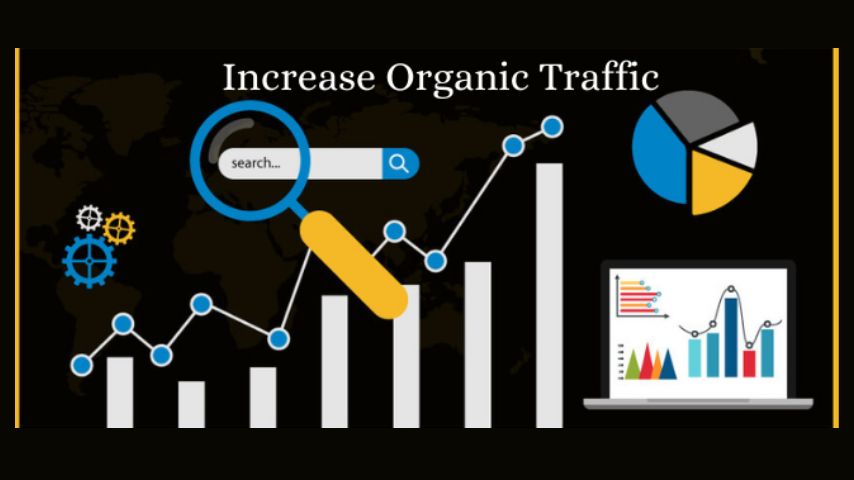In today’s digital age, website visibility on search engines like Google, Bing, and Yahoo is crucial for businesses aiming to attract customers and build their online presence. Top Atlanta SEO Services offers online visible website can drive organic traffic, generate leads, and improve brand recognition. Here’s a comprehensive guide to boosting your website’s visibility on search engines using effective, user-friendly strategies.
1. Understand the Importance of Search Engine Visibility
Search engine visibility refers to how easily users can find your website through search results. Higher visibility often translates to increased traffic and engagement, making it essential for businesses of all sizes.
Key Benefits:
- Increased Traffic: More visibility leads to more clicks from users.
- Better Credibility: Websites on the first page of search results are perceived as trustworthy and authoritative.
- Enhanced Revenue: Improved visibility can lead to more conversions and sales.
2. Conduct In-Depth Keyword Research
Check Google keyword ranking. Keywords are the foundation of any SEO strategy. Identify terms your target audience is searching for and optimize your website around these phrases.
How to Find the Right Keywords:
- Use Google Keyword Planner, SEMrush, or Ahrefs to find high-traffic keywords.
Concentrate on long-tail keywords, which have less competition and more precise user intent.
Analyze competitors to see which keywords they rank for.Incorporate these keywords naturally into your content, titles, headings, and meta descriptions to increase your chances of ranking higher.
3. Optimize On-Page SEO Elements
On-page SEO ensures that your website is structured for both users and search engines.
Also Read:- Top SEO Services in Kansas City
Essential On-Page Elements:
- Title Tags: Create compelling, keyword-rich titles that clearly describe the content.
- Meta Descriptions: Write concise and engaging summaries that entice users to click.
- Header Tags (H1, H2, etc.): Use headings to organize your content and make it easy to read.
- URL Structure: Keep URLs short, descriptive, and keyword-friendly.
- Image Optimization: Use descriptive file names and alt text for images.
4. Create High-Quality, Engaging Content
Content remains king in the world of SEO. Search engines prioritize websites that provide useful, relevant, and up-to-date content.
Content Tips:
Understand your audience: Address common queries and provide the solutions your users are looking for.
Diversify formats: Use blogs, videos, infographics, and podcasts to appeal to various tastes.
Update regularly: Refresh obsolete information to keep it relevant and in line with current trends.
5. Improve Website Speed and Performance
Search engines, especially Google, factor in page speed when ranking websites. A fast website enhances user experience and reduces bounce rates.
Also Visit:- Top Atlanta Web design Services
Ways to Boost Speed:
- Compress Images: Reduce file sizes without sacrificing quality.
- Minimize Code: Remove unnecessary CSS, JavaScript, and HTML.
- Use a CDN (Content Delivery Network): Distribute content across multiple servers for faster delivery.
- Leverage Browser Caching: Enable caching to reduce load times for returning visitors.
Tools like Google PageSpeed Insights and GTmetrix can help diagnose and fix performance issues.
6. Optimize for Mobile Devices
With the majority of web traffic coming from mobile devices, having a mobile-friendly website is essential.
Mobile Optimization Tips:
- Use a responsive design that adapts to various screen sizes.
- Ensure buttons and links are easy to tap.
- Optimize for fast loading on mobile networks.
Google’s mobile-first indexing evaluates the mobile version of your site, so prioritize mobile usability.
7. Build High-Quality Backlinks
Search engines interpret backlinks, or links from other websites to yours, as signals of authority and trustworthiness.
Effective backlink strategies:
Guest Blogging: Write articles for reputed blogs in your field.
Share relevant material with influencers and industry leaders.
Broken Link Building: Locate broken links on other websites and recommend your material as a replacement.
Focus on obtaining links from authoritative and related websites.
8. Leverage Local SEO
For businesses targeting a specific location, local SEO is vital for attracting nearby customers.
Local SEO Tips:
- Optimize Google Business Profile: Include accurate business information, hours, and reviews.
- Use Location-Specific Keywords: Incorporate phrases like “best restaurants in Atlanta” or “SEO services near me.”
- Encourage Reviews: Positive reviews on Google and other platforms can boost your local search rankings.
9. Enhance User Experience (UX)
A seamless and enjoyable user experience encourages visitors to stay on your site longer, signaling quality to search engines.
How to Improve UX:
- Ensure intuitive navigation with clear menus and categories.
- Use readable fonts and contrasting colors for accessibility.
- Minimize intrusive ads or pop-ups that disrupt engagement.
10. Monitor and Analyze Performance
SEO is an ongoing process, and regular analysis is essential for improvement.
Tools to Use:
- Google Analytics monitors traffic, bounce rates, and user behavior.
- Google Search Console: Identify crawl errors, track rankings, and analyze search performance.
- Ahrefs or SEMrush: Monitor backlinks, keywords, and competitors.
Use the data to refine your strategy and address weaknesses.
11. Adapt to Algorithm Updates
- Search engine algorithms are always changing. Stay informed of changes and alter your plan accordingly.
Recent Trends to Watch:
Core Web Vitals: Prioritize loading speed, interactivity, and visual stability.
E-A-T (expertise, authority, and trustworthiness): Create well-researched and credible material.
Voice Search Optimization: Use conversational terms to cater to voice search users.
Conclusion
Increasing website visibility on search engines is a multifaceted process that requires consistent effort and attention to detail. By focusing on keyword research, optimizing on-page elements, creating quality content, and improving technical aspects, you can enhance your website’s rankings and attract more organic traffic.
Remember, search engine optimization is not a one-time task—it’s an ongoing journey. Stay updated with industry trends, analyze performance regularly, and prioritize user satisfaction to achieve long-term success online.
Ready to make your website shine on search engines? Start implementing these strategies today!







